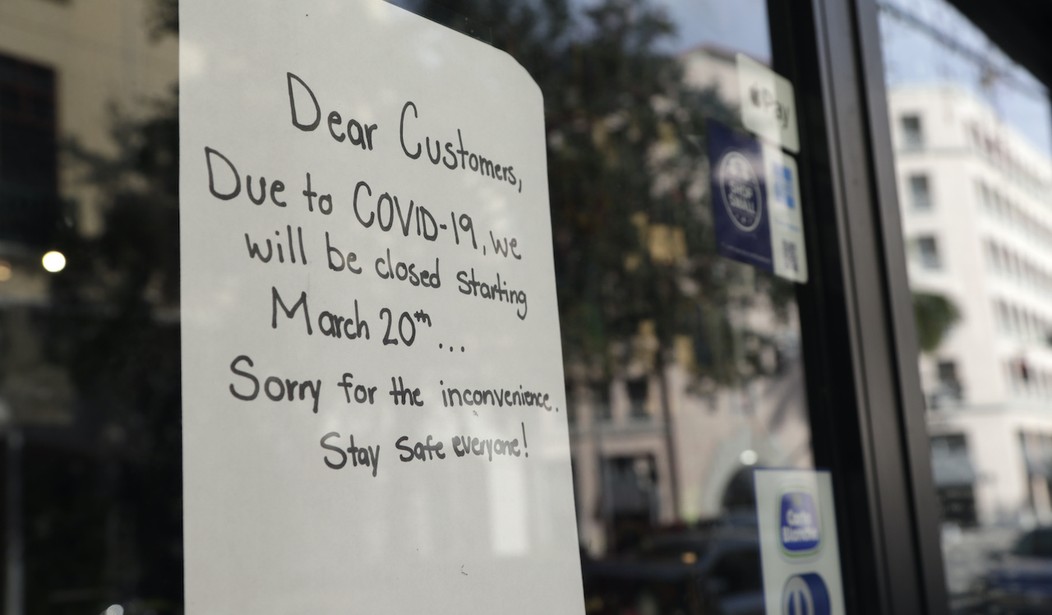Law professor Josh Blackman always has an interesting perspective on Second Amendment legal issues, and his latest law review article is no exception. Blackman decided to take a look at how the COVID orders closing “non-essential” businesses impacted gun stores around the country, and his findings are fascinating.
Over at Reason, Blackman provides a brief summary of the issues explored in the new piece, explaining that the early days of the pandemic provided courts with a question that really hadn’t been explored before.
Constitutional litigation over the Second Amendment has followed a familiar pattern. In the decade since Heller and McDonald, countless cases have turned on a foundational question: how much danger does the weapon pose? But in 2020, the courts were suddenly presented with a novel constitutional question: how much danger does obtaining the weapon pose? During the COVID-19 pandemic, state and local governments enacted complete prohibitions on the acquisition of firearms. Willing buyers were ready to comply with all extent gun-control regulations. But these governments shuttered firearm stores completely. These policies were adopted not to stop the sale of guns, but to stop the spread of the novel coronavirus. In short order, these governments deemed the Second Amendment as “non-essential.” The ability to purchase firearms was treated no differently than the ability to purchase other conveniences. Still, the practices in the overwhelming majority of the states reflected what should be a basic tenet of constitutional law: enumerated fundamental constitutional rights must be “essential” rights. And the state cannot impose an absolute and arbitrary prohibition on the exercise of the essential Second Amendment.
As Blackman notes, the vast majority of states either didn’t attempt to restrict the ability to own a firearm at all, or if they did, they quickly backed off after the first lawsuits were filed. According to Blackman’s analysis:
- Nineteen States expressly designated firearm sales as “essential” activities
- Two States did not designate firearm stores as “non-essential” businesses that were required to close
- Six States followed the Department of Homeland Security’s designation of firearm stores as “critical infrastructure”
- The laws in two states prevented Governors from treating firearm sales as “nonessential” activities
- Two States deemed firearm sales as “non-essential” activities, but permitted gun stores to open under restricted conditions
- Four states initially deemed firearm sales “non-essential,” but reversed their policies without litigation
- Three states initially deemed firearm sales “non-essential,” subsequently refused to defend their policies in court, quickly settled the cases, and promptly deemed firearm sales “essential”
- Two states initially defended their restrictions on the Second Amendment, and lost in Court
- Two states initially deemed firearm sales “non-essential,” defended their policies, and prevailed in Court
While there were thirteen states that initially declared gun stores to be non-essential businesses, Blackman makes an excellent point in his article; even in those states, the eventual surge in gun sales is a pretty good indication that “the People” themselves view the ability to acquire a firearm for self-defense to be essential.
In January and February 2020, daily sales varied between 80,000 and 100,000. On March 13, 2020, President Trump issued a proclamation that declared a national emergency. This order marked something of a turning point in the national conversation over the pandemic. Over the next dozen days, “firearm sales surged, jumping to over 120,000 per day, and peaking at 176,000 on March 16.” Brookings observed that this spike was “not correlated with COVID-19 death rates nor with increases in unemployment rates.” Rather, the spike “in firearm sales resulted from a general sense of national apprehension, rather than a response to differential deterioration in local conditions.”
Nearly two million guns were sold in March, according to a New York Times analysis. The FBI reported that the period from March 15 through March 22 recorded the highest number of background checks since it began keeping records in 1998: more than 2.4 million. In seven states Governors deemed firearm sales as “non-essential”: California, Delaware, Michigan, New Jersey, New Mexico, New York, and Pennsylvania. The people of those states disagreed.
Blackman goes on to detail the differences in gun sales in these seven states between the March 2019 adjusted NICS figures and March of 2020.
- California- 33.68% increase
- Delaware- 62.95% increase
- Michigan- 107.92% increase
- New Jersey- 29.87% increase
- New Mexico- 45.82% increase
- New York- 70.80% increase
- Pennsylvania- 18.06% increase
Even in those states where governors either shut down or greatly curtailed the ability of gun shops to operate, gun sales increased dramatically after first the stay-at-home orders were issued. As Blackman writes:
During times of civil unrest, millions of Americans viewed the acquisition of firearms as essential. In Heller, Justice Scalia wrote that the Second Amendment guarantees “the right of law abiding, responsible citizens to use arms in defense of hearth and home.” The early days of the pandemic proved Justice Scalia correct.
The legal arguments over whether or not gun stores can be considered “essential” may continue, but Blackman’s right that in the court of public opinion the debate is over. When things get weird, as they did last March, Americans want to be able to protect themselves, and many of them took advantage of their Second Amendment rights for the very first time, even while their own governments were trying to block their access to firearms. In the most cases, those efforts failed, though courts in New York upheld Gov. Andrew Cuomo’s restrictions. Blackman delves into that case in some detail in his latest article, including why he believes the courts got it wrong, but you should check out his argument for yourself, because it’s a little too long to quote in full here.








Join the conversation as a VIP Member